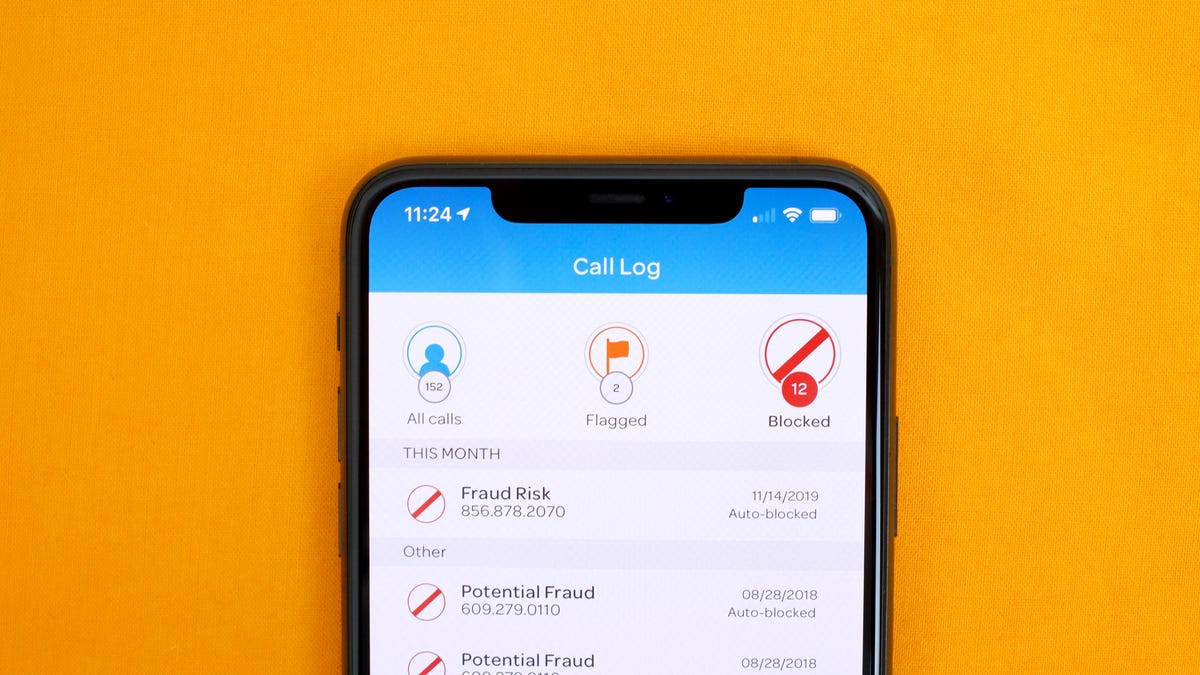Illegal robocallers could be punished under a new House bill
The TRACED Act would also require phone carriers to offer free robocall blocking services.

Under the new bill, carriers would have to provide services that block robocalls at no cost to customers. (Pictured here: AT&T's Call Protect)
A bipartisan bill passed in the US House of Representatives on Wednesday would require phone carriers to offer free robocall blocking services to customers and give the Federal Communications Commission and the Department of Justice permission to punish illegal robocallers. The Pallone-Thune TRACED Act passed by a vote of 417-3, and will now move on to the Senate.
Americans received nearly 50 billion robocalls last year -- nearly 50% of which were from scammers, according to a February FCC report. The number of complaints about illegal robocalls has been increasing, rising from 172,000 complaints in 2015 to 232,000 complaints in 2018, the report found.
Read more: It's time to put an end to robocalls for good. Get started now
"These calls are not just annoying, in a lot of instances they are scams targeted at consumers," bill author Rep. Frank Pallone, Jr., a Democrat from New Jersey, said in a press release. "And, unfortunately, these scams are becoming more sophisticated every day. All of these scams are different, and there won't be a single silver bullet to fix them all, but the Pallone-Thune TRACED Act attacks the problem from multiple angles."
The bill would also require the FCC to work to stop one-ring scams and help the FCC and phone carriers trace and cut off suspected companies that send out the vast number of illegal spam calls. It would also protect patients, doctors and hospitals from these calls, according to the release.
"Robocallers are officially on notice," Robert Fisher, Verizon senior vice president of federal government affairs, said in a statement. "The House of Representatives today scored a big win for consumers and businesses with the overwhelming and bipartisan passage of the Pallone-Thune TRACED Act. This legislation will ensure widespread call authentication, the ability for end users to block any and all unwanted calls, and creates stronger enforcement mechanisms and increased penalties for the bad actors responsible for these annoying and harassing robocalls."
The bill reconciles the differences between two that came before it: The Telephone Robocall Abuse Criminal Enforcement and Deterrence (TRACED) Act, passed by the Senate in May, and the Stopping Bad Robocalls Act, passed by the House in July.
Originally published: Dec. 4 at 12:10 p.m. PT.
Update, 2:09 p.m.: Adds statement from Verizon.

